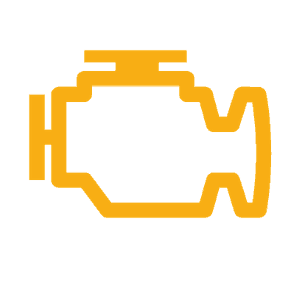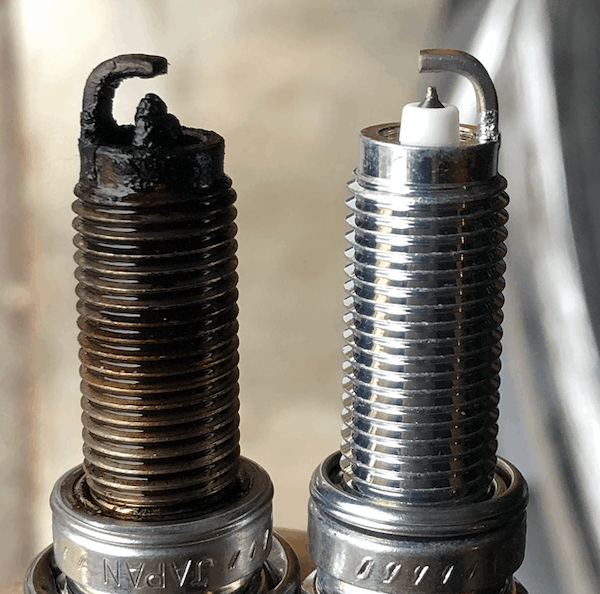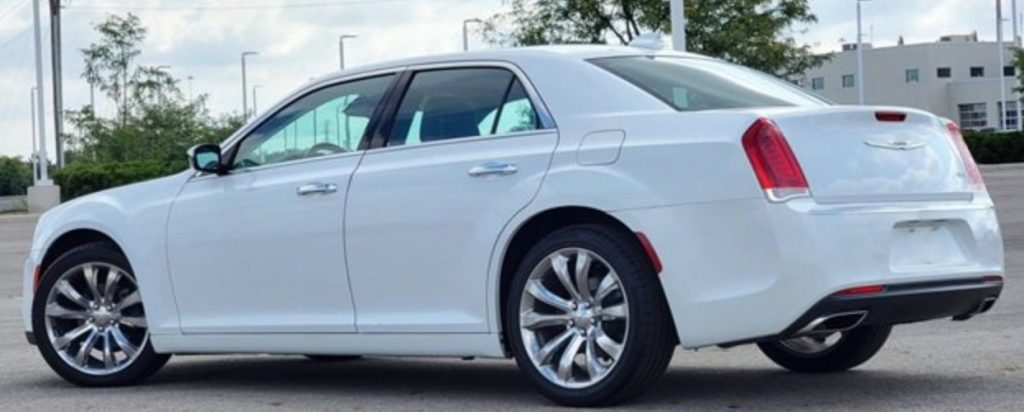
If your Chrysler 300 has the P0303 trouble code, you should know that it’s about as common of a code as there is. It’s a generic code (same meaning for all vehicles) that indicates that your car’s third cylinder is misfiring.
P0303 is a real drivability concern and should be dealt with right away. If it’s bad enough to cause your 300’s check engine light to flash, avoid driving your car altogether until you find the misfire and repair your engine.
Repairing P0303 should be considered a high priority. Unlike a lot of the OBDII codes, this code has to do directly with engine combustion. It also can cost money to ignore it, since driving with a misfire can damage the 300’s catalytic converter.
The most common repair for P0303 is changing the spark plugs.
Table of Contents:
P0303 Definition: 3’rd Cylinder- Misfire Detected

3’rd Cylinder
P0303 is a cylinder-specific misfire code, meaning it’s only the third cylinder that has a misfire. Before you can diagnose P0303 in your car, you need to find the third cylinder.
On “V” configuration engines, it’ll usually be the second cylinder on the head closer to the front of the engine. On inline engines, the third cylinder will usually be the three in from the engine accessories.
A quick google image search will confirm the correct cylinder (include your 300’s model year and engine type).
Most parts stores will print you a copy of your engine’s cylinder numbers and their location on a sheet of register paper.
Misfire Detected
In order for an engine to burn fuel efficiently, each cylinder needs the following:
- Fuel– In the right quantity (around 14.7 parts air to one part fuel).
- Air– It needs to be metered by your 300’s mass air flow sensor or MAP sensor, so the powertrain control module (PCM) knows exactly how much air to let into the combustion chamber.
- Spark– The spark plug needs to fire at the right time and at the right temperature.
- Compression– The air-fuel mixture must be compressed during the engine’s power stroke.
If one of the above variables is off, your 300’s third cylinder will misfire, or it won’t fire at all.
Chrysler 300 P0303 Symptoms

Here are the most common symptoms of P0303 in the Chrysler 300. There may be no noticeable symptoms at all.
- Check engine light
- Your car may run rough, be down on power, and stall.
- Your 300 may produce excess vibration, especially at lower RPM.
- Fuel mileage may suffer.
- You may smell raw gas coming from the tailpipe.
- The engine may backfire.
P0303 OBD II Code Causes: Chrysler 300

Here are the most common P0303 Chrysler 300 causes; they are presented somewhat in order from most to least likely to be causing the code in your car:
- Bad Spark Plugs– A fouled spark plug is the most common cause of P0303. Look at the electrodes and see if they are in good shape. Your 300 likely has iridium plugs that need to be changed very infrequently. That being said, a bad spark plug is the number one offender when it comes to P0303. Here’s a great video on verifying a spark plug is bad.
- Spark Plug Wires– On most modern engines, the plug wires are not nearly as long as they once were (if your car even has them), but they can still go bad. Here’s how to tell if your plug wires are bad (video).
- Coil Packs– Coil packs rarely go bad, but when they do, they can cause P0303 in your Chrysler 300. Replacing a set can be very expensive. Here’s how to test them.
- Bad Fuel Injector– If you have a fuel injector that has failed, it won’t be able to properly atomize the fuel, and you’ll get P0303. Here’s a good video on how to diagnose an injector; it can be a little tricky. You’ll likely see P0171 and/or P0203 with a bad injector.
- Vacuum leak– If your 300 has a vacuum leak, it can be difficult for the PCM to get the right air/fuel mixture. This will cause the cylinders to misfire, and it’ll throw P0303 if the leak is around that specific cylinder on the intake manifold. Popular Mechanics: How to find a vacuum leak. You’ll likely see P0171 and P0300 when there’s a vacuum leak.
- Cam or Crank Sensors– This one is unlikely, but it does happen. If the ECU is not getting the right signal from these sensors, the vehicle’s timing will not sync up, and it’ll misfire. You’ll likely get P0300 and a cam/crank correlation code too.
- Mechanical Issue– If your 300 has a leaking head gasket, bent valve, cracked head, etc… that would cause compression to not be as high as it should be, you’re going to get P0303. You should also feel that your car is down on power as well.
P0303 Fix: Chrysler 300

If P0303 is the only code you get when you plug an OBD II scanner into your 300, this section should help you determine what is causing the code.
If you have multiple codes with P0303, jump down a section.
1. Swap Test
Here’s a quick and easy test to determine what is causing your 300’s third cylinder to misfire. Swap ignition parts to another cylinder. Here’s how to do it.
- Identify the third cylinder.
- Remove the spark plug.
- Swap it with the most convenient cylinder to access’s spark plug.
- Clear your 300’s DTC codes with a scanner.
- Start the engine and wait for the check engine light to come back on. If it changed to a different P030X code, the plug was bad.
- If nothing changed, do this for the coil packs and plug wires (if equipped).
- If the code stays P0303, you’ve ruled out the most common causes of this code.
2. Diagnosis
Here’s what to look for when the swap test didn’t change your car’s misfire code number.
- Check the wiring harness going to the cylinder three coil pack. If it’s damaged or loose, repair it. Ignition wiring is a common rodent damage area.
- Check for a vacuum leak.
- Verify the number three injector is working (there’s a link to how to test one above).
- Do a compression test.
- Perform a leak-down test.
P0303 + Other Codes
P0303 + P0300
The most likely reason your 300 will get P0300 and P0303 simultaneously is faulty spark plugs.
P0300 in the Chrysler 300 indicates random multiple misfiring, which means that multiple cylinders are misfiring at the same time.
If your Chrysler 300 has P0300 and P0303 error codes, it’s best to diagnose why the third cylinder is misfiring and see if that will fix the P0303 code.
Try doing the swap test from the previous section. Make note of the condition of BOTH spark plugs as you swap them. If they look fouled, new plugs will likely clear this code.
P0303 + P0171
Look for a vacuum leak around the third cylinder or a bad fuel injector.
While there are many potential causes for P0171, the most prevalent is a vacuum leak.
When your 300 has P0303 and P0171 together, it’s often caused by a clogged or underperforming fuel injector. Look for a vacuum leak at the intake around the third cylinder.
P0303 + Other Cylinder Misfire Codes
Treat P0303 with these codes like it has P0300.
P0303 will often be accompanied by codes P0301, P0302, P0304, P0305, etc… These codes indicate a misfire in cylinders one, three, four, and five, respectively.
Treat P0303 with these codes like it has P0300. Suspect an ignition-related cause or a vacuum leak.
Common Questions
Is P0303 a serious concern?
P0303 is cause for concern and, left unfixed, can leave you stranded. Your 300 will be virtually undrivable if the third cylinder stops firing altogether. The raw fuel can also damage the catalytic converter.
Can you drive your 300 with P0303?
We do not advise driving your 300 with P0303. It can cause damage to your car, particularly if the check engine light is flashing.
Is P0303 hard to repair?
Most of the time, P0303 is not hard to repair, as you’ll be swapping out ignition parts. It’s a great first-time project for a shade tree mechanic. If the problem ends up not being ignition related, that’s when you might have to bring it into a shop.
Conclusion
Replacing the spark plug or coil packs is the most common fix for P0303 in the Chrysler 300. There are other causes, but the swap test can help narrow them down considerably.

